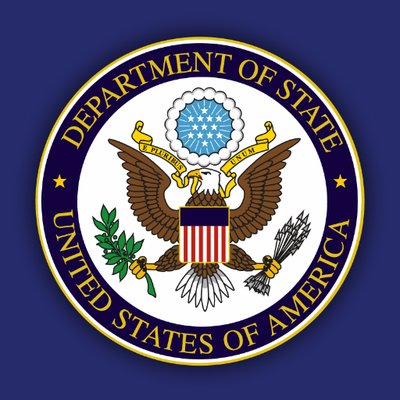The impressive strength of Taiwan’s Democratic Progressive Party (DPP) in recent local elections has caused a surge of speculation in both East Asia and the United States about whether the Taiwan issue might become the latest source of tension in China-U.S. relations. There is no question that the election results signaled a dramatic repudiation of President Ma Ying-jeou and the governing Kuomintang Party (KMT). There were multiple reasons for the KMT’s electoral debacle, including the rise of the youth-oriented “Sunflower” reformist movement and its potent complaints about a corrupt, unresponsive political system.
Much of the public’s rebellion, though, also explicitly reflected growing dissatisfaction with Ma’s accommodating policy toward Beijing. An early sign of trouble occurred when angry demonstrations erupted in March 2014 in response to a new trade deal between Taipei and Beijing, which opponents argued would give China far too much influence over Taiwan’s economy. Beijing is clearly worried about the implications of the recent vote. Nervous Chinese media outlets felt it necessary to warn the victorious DPP against interpreting the election results as a mandate for more hard-line positions on cross-strait issues.
But the underlying dynamics go much deeper than the outcome of one election. Indeed, it is possible to make the case that instead of signifying a permanent, more conciliatory shift in Taipei’s stance on relations with the mainland, Ma’s presidency has been merely a pause in a longer-term trend of greater Taiwanese assertiveness toward Beijing. Such behavior commenced in earnest during the presidency of Lee Teng-hui in the mid and late 1990s and reached its zenith under Chen Shui-bian—a DPP stalwart—the following decade.
As Taiwan’s protector, the United States began to worry during Lee’s administration, and even more so during Chen’s, that Taipei was pushing the policy envelope to a dangerous extent regarding the island’s de facto independence from Beijing. Indeed, Chen and his followers made little secret of their desire to convert Taiwan’s de facto independence into a more formal, internationally recognized version. There were repeated crises in the Taiwan Strait during those years, and Beijing’s warnings that Taipei’s “separatist” activities created the risk of a military showdown grew ever more emphatic.
Ma’s election in 2008 suggested that Chen’s bold, pro-independence policies had made many Taiwanese uneasy. Washington also regarded the KMT’s return to power with a sense of relief, believing that the period of Taipei’s risky brinksmanship had come to an end. And cross-strait tensions have eased dramatically during Ma’s administration. Economic links between Taiwan and the mainland surged, with more than 20 significant agreements. Taiwanese investment on the mainland has become a major factor, and tens of thousands of mainland tourists now visit the island annually.
Beijing’s underlying strategy was evident: Chinese leaders believed that the proliferation of economic ties would gradually undermine public support for the DPP and its goal of an independent Taiwan. At best, though, that strategy has been just partially successful. The overall orientation of the DPP certainly has become less strident regarding independence. Most party adherents do not seem to favor a return to the highly confrontational stance of the Chen years.
Such greater moderation, though, has not translated into a meaningful increase of the public’s receptivity to reunification with the mainland. Opinion surveys consistently show meager support for Beijing’s “one country, two systems” formula, even if it included a high degree of political autonomy for Taiwan. Hong Kong’s recent restlessness regarding that system, and Beijing’s uncompromising response toward the demand of Hong Kong’s activists for democratic reforms, reinforced the wariness of the Taiwanese people.
Beijing’s hopes that an ever-increasing network of cross-strait economic ties would lead to Taiwan’s greater willingness to accept political reunification were always excessive. Indeed, even the accommodating Ma Ying-jeou expressed definite limits regarding prospects for reunification. In a crucial 2006 speech, Ma stressed the conditions that would have to be met before unification could occur. First, the mainland would have to become fully democratic. Second, the Taiwanese people would have to give their explicit consent. (Indeed, he emphasized that voters must be allowed to opt for independence, if that is what they wanted.) Finally, the vast differences in both the economic and social systems of the mainland and Taiwan had to be narrowed dramatically.
Although Ma was willing to accept reunification in principle, his caveats were so demanding as to render it impossible in the foreseeable future. And Ma may well be the most cooperative Taiwanese leader that Beijing will face, given the island’s political realities.
The contentious Taiwan issue has merely been slumbering during the presidency of Ma Ying-jeou, and it now shows signs of awakening. That development is more than a matter of academic interest to the United States. Under the 1979 Taiwan Relations Act, Washington is obligated to assist Taipei’s efforts to maintain an effective defense and to regard any coercive moves Beijing might attempt against the island as a serious threat to the peace of East Asia. Impatience on Beijing’s part regarding Taiwan’s status could reignite that issue as a source of tension in U.S.-China relations.
Bilateral relations are already somewhat fragile. The announced U.S. “pivot” of U.S. forces to East Asia intensified Beijing’s suspicions about Washington’s geostrategic motives. And sharp differences regarding territorial issues in the South China and East China seas have also become a persistent source of friction. Adding the emotional Taiwan issue to existing disputes could easily produce an explosive confrontation. Both U.S. and Chinese leaders need to proceed with extreme caution.

